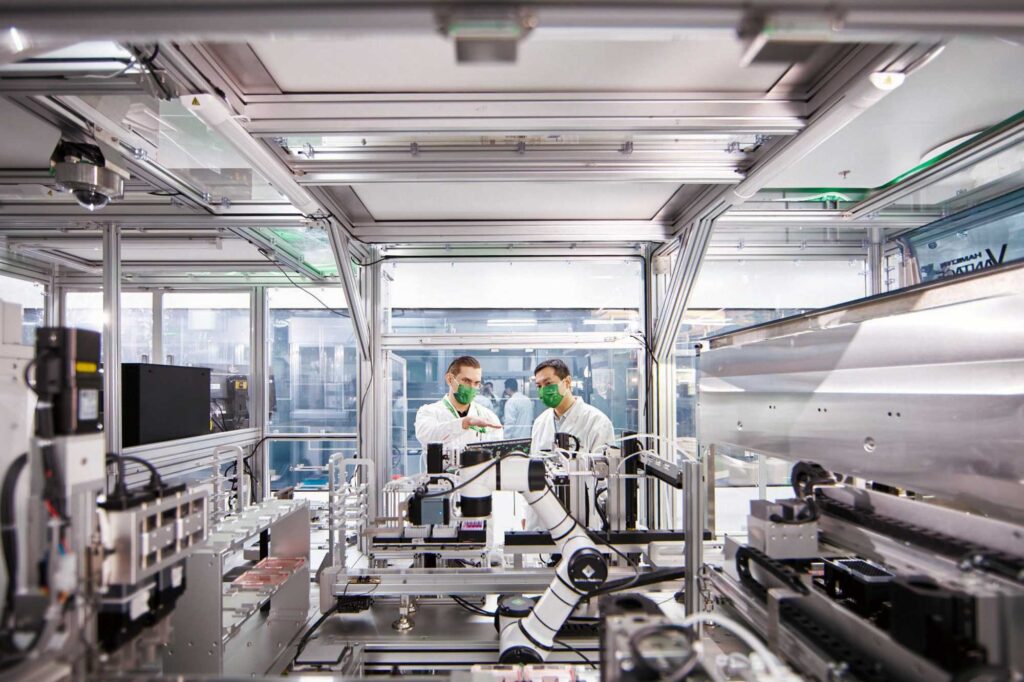Leveraging AI to find a potential new drug for liver cancer

In January 2023, the discovery of a potential new drug candidate for liver cancer demonstrated how the Acceleration Consortium’s paradigm of self-driving labs— also known as material acceleration platforms — can speed up the process of developing new medicines.
At the Acceleration Consortium, AI-enabled computer models can comb through ‘chemical space,' searching through millions of different molecules to find those with a desired property. Automated equipment can then synthesize and test the materials most likely to make the grade, with the results of those tests fed back into the model for another iteration.
In this case, the researchers targeted a previously unknown ‘weak spot’ in cells exhibiting hepatocellular carcinoma (HCC), the most common type of primary liver cancer. The team used a model called AlphaFold, released by DeepMind, a subsidiary of Alphabet, which predicts the 3D structure of proteins based on their amino acid sequence. Two more models— developed by industrial partner Insilico Medicine — were PandaOmics, which identified the target protein within HCC cells, and Chemistry42, which sifted through a vast chemical library of molecules to find those that would bind to it.
The Acceleration Consortium team then synthesized and tested the best molecules against real HCC cells in the lab, using the results from each iteration to zoom in on an optimal solution. Where this step would have previously required hundreds of molecules to be tested, the team found a suitable candidate after synthesizing only seven test molecules. From identifying the target to finding the potential drug candidate, the entire process took about 30 days — doing this the traditional way, with humans identifying, synthesizing and testing the candidate molecules, could have taken months or years. The research is published in the journal Chemical Science.
“What this paper demonstrates is that for health care, AI developments are more than the sum of their parts,” says Alán Aspuru-Guzik, a professor in U of T’s Department of Chemistry and director of the Acceleration Consortium.